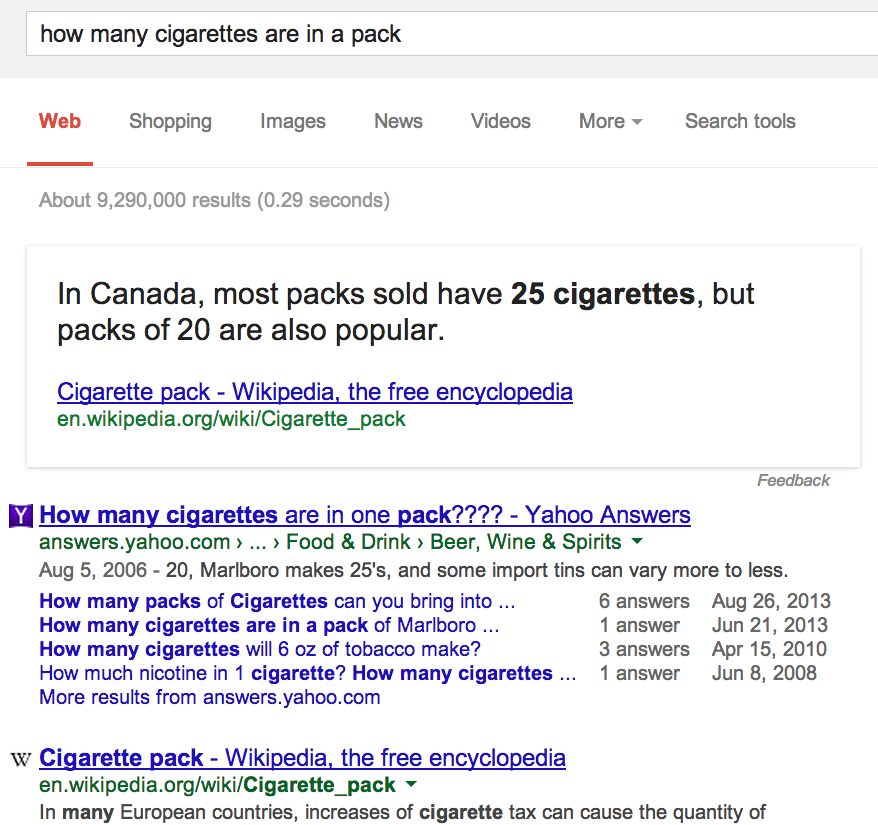Since I recently saw quotation cards and movie information cards in Google search results, I’m on the lookout for other interesting sources of information that Google is mining to, you know, organize the world’s information.
Here’s one that isn’t new, but is noteworthy for a different reason:

As you can see, I searched for how many cigarettes are in a pack and got the bewildering answer from Google, In Canada, most packs sold have 25 cigarettes, but packs of 20 are also popular.
It was clearly an error for Google to give me this answer about Canada’s cigarettes coming in packs of 25. But how and why was it an error?
I did the search using a New York City ISP, logged into Google.com (US) with personal my Google identity, and nothing in my search history could suggest that I’m particularly interested in how consumer goods are packaged differently in Canada than in other countries. So I suspect that the origin of the mistake was not on the interpretation side.
Instead, it was on the scraping and processing side. Because Google is relying on Wikipedia for this information, and because Wikipedia doesn’t have data for this that’s marked up with anything that could make it super easy to process, the end result is sloppy and more of a best guess than a definitive answer. In my opinion, answer cards in search results should be for definitive answers.
I also think it’s interesting that Google can parse language like, “most packs sold have 25 cigarettes, but packs of 20 are also popular,” but language like, “the quantity of cigarettes in a pack must be at least 20,” is beyond its reach. I’d rather expect the opposite to be true. quantity(pack of cigarettes) ≥ 20 seems like it would be relatively more straightforward to understand and then to display.
By the way, I already knew that there are twenty cigarettes in a pack. I just wanted to see if that had changed at all in the past decade and a half since I’d bought a pack of cigarettes for somebody.
